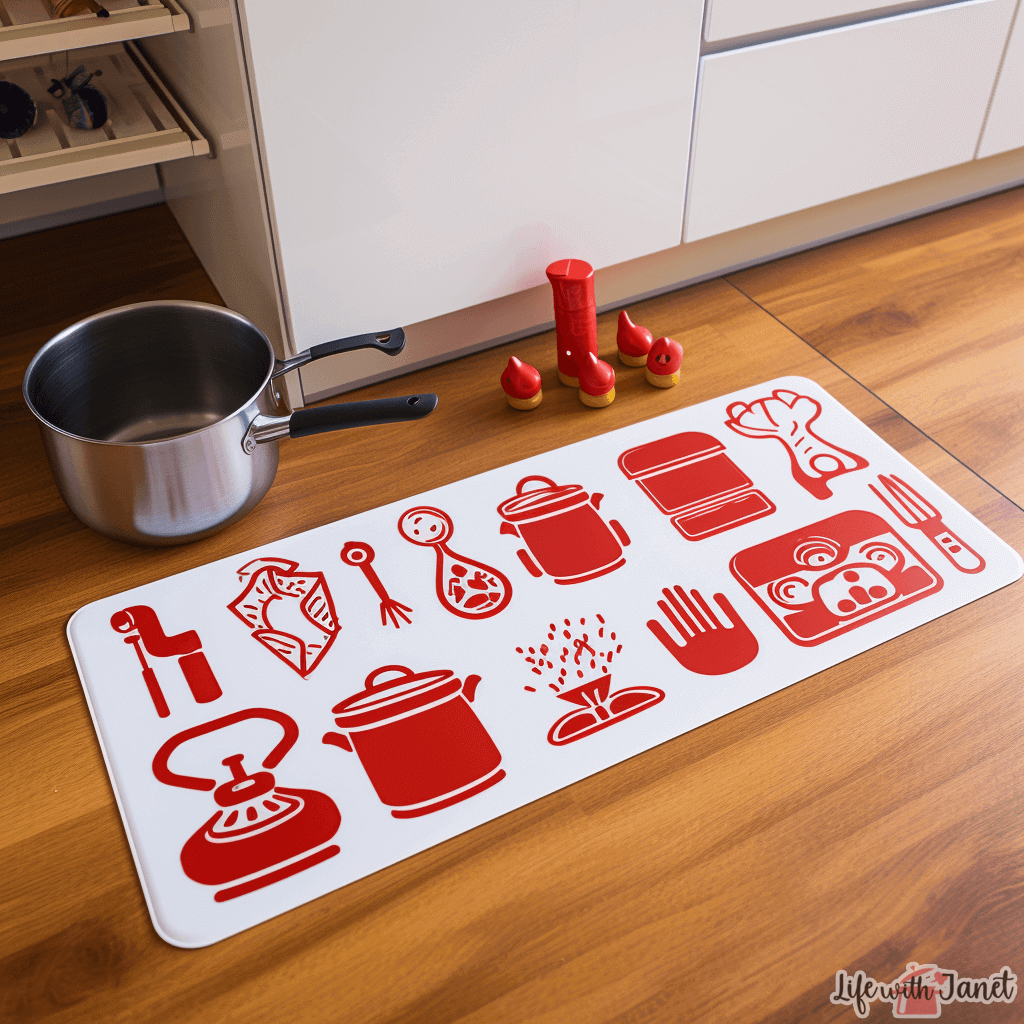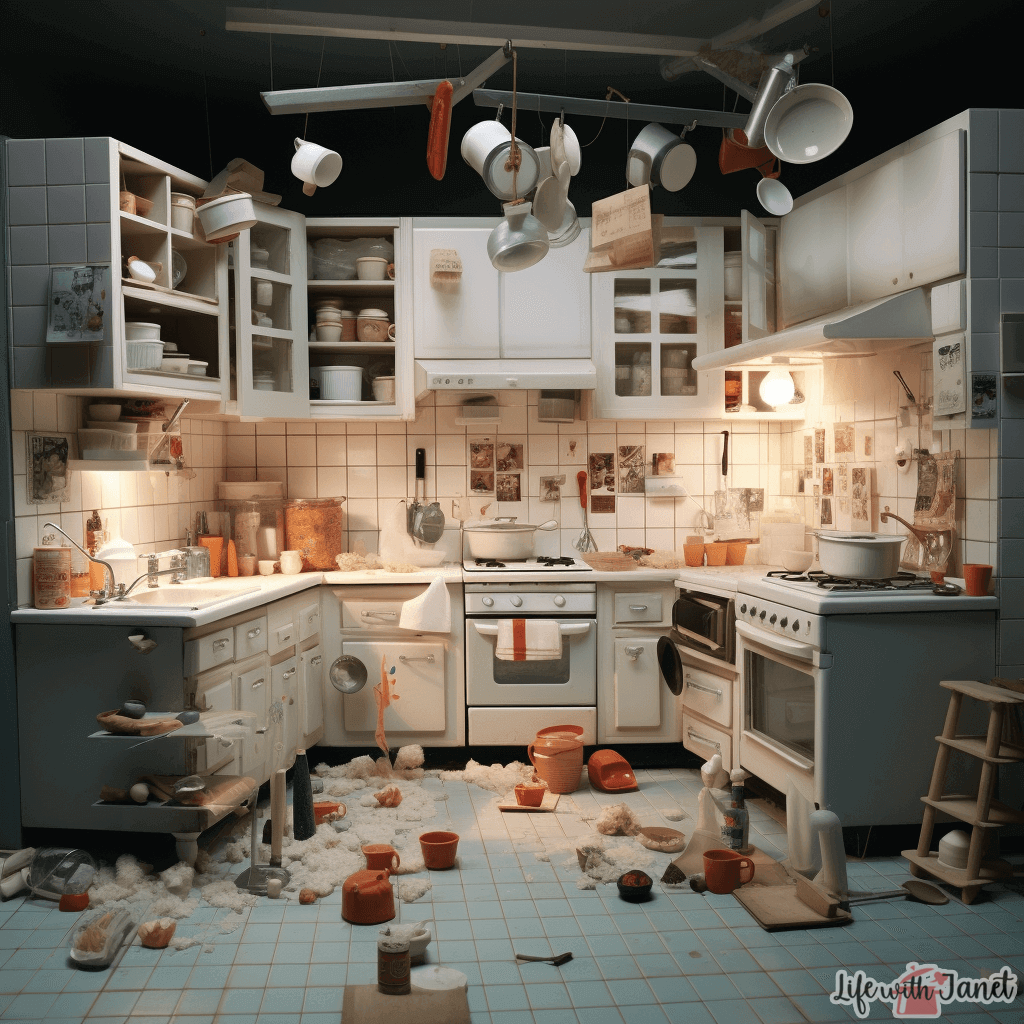WANT TO SAVE THIS RECIPE?
Why is home insurance crucial for at-home chefs?
Aspiring chefs and culinary enthusiasts often experiment in their kitchens, which, while exciting, can sometimes lead to unforeseen accidents. Whether it’s a minor spill or a significant mishap, these incidents can result in considerable financial strain if not adequately covered.
- Protecting your Investment: For many, the kitchen is the heart of the home. Investing in quality appliances and fixtures can be costly. Home insurance ensures that these investments are protected against potential damages.
- Liability Coverage: If someone gets injured in your kitchen, perhaps due to a slippery floor from a spill, they might file a claim against you. Home insurance often includes liability coverage, protecting homeowners from potential lawsuits.
- Peace of Mind: Knowing that potential damages and liabilities are covered allows at-home chefs to focus on honing their craft without constantly worrying about the “what ifs.”
- Replacement Costs: In case of a mishap, replacing or repairing kitchen equipment can be expensive. Insurance helps cover these costs, ensuring that you can get back to cooking without a significant financial burden.
- Financial Security: A major kitchen accident, such as a fire, could lead to significant renovation costs. Home insurance provides the financial support required in such scenarios.
- Adaptable Coverage: As your kitchen evolves, so can your insurance coverage. Whether you add new appliances or upgrade existing ones, it’s essential to ensure they’re adequately covered.
How does home insurance cover potential kitchen mishaps?

Understanding how home insurance offers coverage can save a lot of distress in the aftermath of a kitchen accident. Each policy might differ slightly, but there are some general guidelines.
- Property Damage: If a kitchen incident damages your property, your insurance may cover the cost of repairs or replacements. This can range from flooring and cabinetry to expensive appliances.
- Personal Property: Personal belongings, like your prized cutlery set or imported dinnerware, can also be covered if damaged during a kitchen mishap.
- Liability Protection: Accidents happen. If a guest is injured in your kitchen, liability protection can cover their medical bills and any legal fees should they decide to sue.
- Additional Living Expenses: If your kitchen becomes unusable due to a mishap and you need to live elsewhere while it’s being repaired, some policies will cover those expenses.
- Deductibles: Typically, you’ll have to pay a deductible before your insurance kicks in. It’s essential to know this amount and factor it into your finances.
- Coverage Limits: Every insurance policy will have a limit on the amount they’ll payout. Be aware of these limits and ensure they align with the value of your kitchen and its contents.
What common kitchen accidents might be covered under a home insurance policy?
Kitchens, though functional and vital, are prone to accidents. Understanding which mishaps your home insurance might cover can help in preparedness. Here’s a table showcasing common kitchen accidents and whether they’re typically covered:
| Kitchen Accident | Typically Covered by Home Insurance? |
|---|---|
| Fire from cooking | Yes |
| Water damage from sink overflow | Yes |
| Appliance malfunction leading to damage | Yes |
| Food spoilage due to refrigerator breakdown | Sometimes |
| Knife cuts or injuries | Yes, under liability coverage |
| Broken dishes or glassware | Depends on the policy specifics |
Remember, always refer to your specific policy details and consult with your insurance provider to understand exact coverages.
Are there any kitchen-related incidents that home insurance doesn’t cover?
While home insurance provides extensive coverage, not all kitchen-related incidents might be included. Here’s a list of potential exclusions:
- Wear and Tear: Regular usage might cause deterioration in kitchen appliances or countertops. Insurance won’t typically cover these.
- Unreported Renovations: If you’ve upgraded your kitchen but haven’t updated your insurance policy, any damages to the new additions might not be covered.
- Intentional Damage: Damages caused intentionally are not covered by insurance.
- Negligence: If an accident occurred due to your negligence (like leaving the stove on), your claim might be denied.
- Acts of God: Some policies might not cover damages caused by natural disasters unless you have additional coverage.
- Policy Caps: If the damage exceeds the maximum limit set in your policy, the excess amount won’t be covered.
It’s crucial to read your insurance policy thoroughly and discuss any ambiguities with your insurance agent.
How can I determine the right amount of coverage for my kitchen under home insurance?
Ensuring you have adequate coverage for your kitchen is essential. Here are steps to determine the right amount:
- Inventory your Kitchen: Make a list of all kitchen items, appliances, and fixtures, noting their purchase date and value.
- Appraise Expensive Items: For items of significant value, consider getting a professional appraisal.
- Estimate Replacement Costs: Determine how much it would cost to replace items in today’s market, not just their purchase price.
- Factor in Renovations: If you’ve recently renovated your kitchen or plan to, factor in these costs.
- Consider Liability Coverage: Based on the activity level in your kitchen, you might want higher liability coverage. If you frequently host, more coverage might be prudent.
- Review Regularly: As you make changes to your kitchen or its contents, regularly review and adjust your coverage.
A trusted insurance agent can provide guidance tailored to your specific needs. Ensure you have the right protection, so you can continue your culinary adventures with peace of mind.
What steps should I take after a kitchen mishap to ensure a successful insurance claim?
After a kitchen mishap, the initial shock can be overwhelming. However, timely and systematic actions can make the insurance claim process smoother. Here’s a step-by-step guide to follow:
- Safety First: Ensure that everyone in the household is safe. If the mishap involves fire, gas, or water leakage, address the immediate danger by turning off the appliances and utilities, if safe to do so.
- Document the Scene: Take clear photographs and videos of the affected area and damaged items. This visual evidence will be invaluable when filing your insurance claim.
- Notify the Insurance Company: Inform your insurance provider about the incident as soon as possible. They can guide you on the next steps and inform you about the required documentation.
- Maintain Records: Gather and maintain records related to the mishap. This could include purchase receipts of damaged items, repair cost estimates, and any other related expenses.
- Mitigate Further Damage: Take necessary steps to prevent additional damage. For instance, if there’s water leakage, mop up the excess water to prevent mold formation or further damage to flooring.
- Stay Organized: As you navigate the claim process, keep all communication with your insurance company organized, including emails, call logs, and correspondence.
Remember, honesty is vital. Present an accurate account of events and damages to your insurance company. Trying to exaggerate damages or provide misleading information can result in claim denial and potential legal consequences.
In Summary
Home insurance is an indispensable asset for at-home chefs. While the kitchen is a place of creativity and warmth, it’s also a space where mishaps can occur. From unexpected fires to appliance malfunctions, many unforeseen events can disrupt your culinary journey. With the right home insurance coverage, you can navigate these challenges confidently, knowing you have the financial backing to set things right. Ensure you stay informed about your policy’s specifics, regularly update your coverage, and always prioritize safety in the kitchen.


